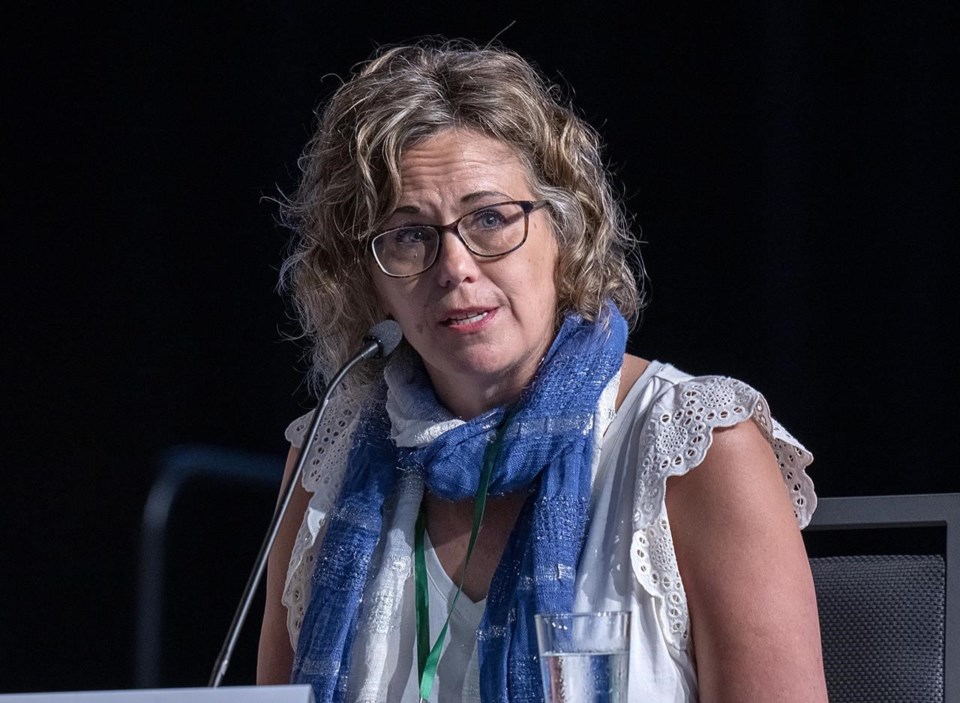HALIFAX — In the coming days, the federal and Nova Scotia governments will face the first deadline for action recommended by the inquiry that investigated the worst mass shooting in Canadian history.
The Mass Casualty Commission, which tabled its final report last month, has called on the two levels of government to deal with the "unmet need for mental health, grief and bereavement supports" in northern and central Nova Scotia, where 22 people were shot dead on April 18-19, 2020.
It remains unclear what, if anything, will happen when the deadline arrives on Monday, but one thing is certain: Serena Lewis will be watching.
The registered social worker was the province's grief and bereavement coordinator in northern Nova Scotia three years ago when a gunman disguised as a Mountie went on a 13-hour rampage through the largely rural area.
"I've dedicated my career to (dealing with) grief, but it's very difficult with something of this magnitude," Lewis said in a recent interview, recalling the countless hours she spent trying to help people devastated by the tragedy, just as the COVID-19 pandemic was taking hold.
"I was committing to people that they were going to get the help that was needed."
But that never happened. Even though she drafted a provincial grief strategy and submitted it to the Nova Scotia government in December 2020, the plan was shelved.
"As my term was coming to an end, I asked if we were going to mobilize the strategy, and I got no word on anything," said Lewis, who left the role in 2021. "I can't answer why things are not moving."
The commission of inquiry concluded that the government's inaction led to a prolonged "public health emergency" in the counties where the killings occurred — Colchester, Cumberland and Hants.
"Many people continue to be affected by this incident," the commission's report says. "While most of them describe its impact as a decline in mental health and/or well-being, others say it has affected the way they live their lives."
Among other things, the commission found the province gave very little support to the most affected residents, and there were delays in providing what was available. For example, people were simply given a list of counsellors rather than help in connecting with one. And some residents had to recount their traumatic experiences repeatedly as they navigated the support system.
Darcy Dobson, the daughter of victim Heather O'Brien, told the inquiry she did not get the help she needed.
"There is definitely a mental-health resource problem in this country, and in this province," she said. "And something needs to be done about it. You never expect a mass casualty to happen, but it does. We’re living proof that there was nobody who knew how to handle the mass of mental health issues that came with it.”
The commission found that "governmental support has been inadequate, leading to a healing deficit and ... broken trust." The report goes on to say the long-term implications include "the potential to lead to further cycles of violence and trauma."
That's why the commission recommended that the federal and Nova Scotia governments start by funding a multidisciplinary team of health professionals who can provide urgent support, and then transition to a long-term strategy.
Lewis said the commission's proposal is exactly what she has been pushing for.
"That's what we've needed since Day 1," she said.
A spokesperson for Carolyn Bennett, the federal minister of mental health and addictions, issued a statement saying Ottawa is reviewing the recommendations and "will work closely with Nova Scotia and with the people and the communities affected."
The statement pointed to Ottawa's new Wellness Together Canada portal and the PocketWell app, which provides free, round-the-clock access to support.
"We know the pain, trauma, and heartbreaking loss will never truly go away, but we stand with you," the statement said. There is no reference to the commission's recommendations or the May 1 deadline.
As for the provincial government, the minister responsible for addictions and mental health, Brian Comer, declined a request for an interview. He issued a statement saying a team of deputy ministers is reviewing the recommendations.
"This includes meeting the May 1 deadline for the recommendation noted," Comer's statement said, offering no details. The province's justice minister offered a similar statement Tuesday.
Alec Stratford, executive director of the Nova Scotia College of Social Workers, said the province has moved too slowly.
"This is work that should have started long ago," he said. "It takes time to build these systems ... And all of this is not going to come into play by May 1."
Stratford said it's important to recognize that the sense of grief many Nova Scotians are still feeling has been complicated by the traumatic nature of what happened and the social isolation caused by the pandemic.
"The ceremonies that we have in our society to bring closure never happened," he said. "Those communities suffered this egregious loss, (and) all of this trauma was followed by a lack of coherent care."
He fears the province's poor response could result in more cases of anxiety, depression, post-traumatic stress disorder and suicidal thoughts.
Lewis said that's why the commission's work is so important.
"If we don't mobilize those recommendations, then what good was it?" she asked. "Where is the accountability?"
This report by The Canadian Press was first published April 26, 2023.
Michael MacDonald, The Canadian Press



